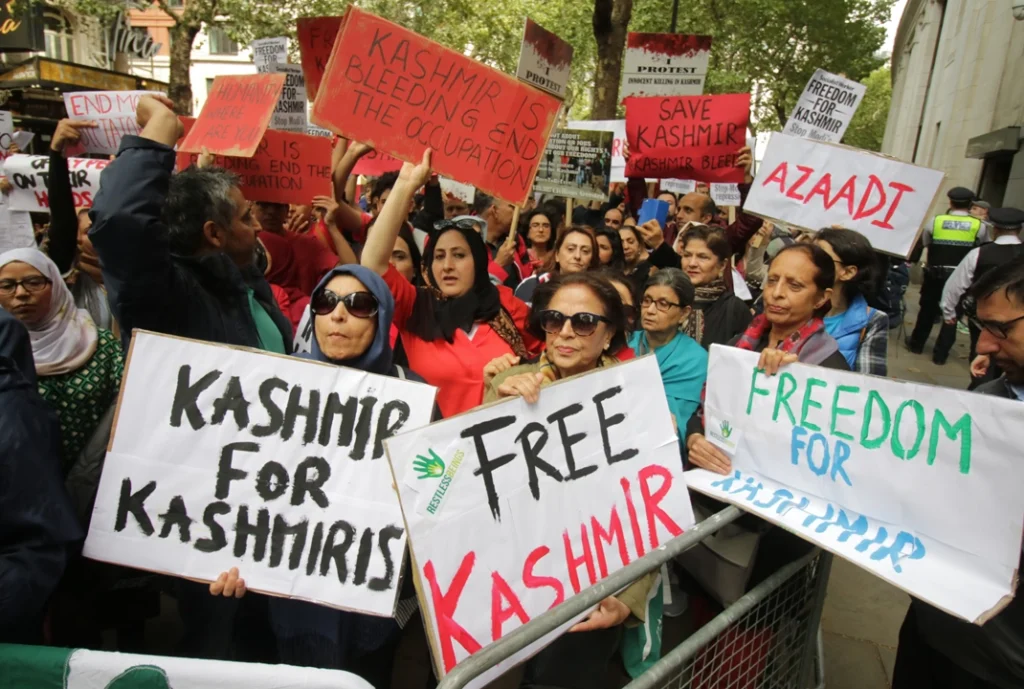- Web Desk
- Feb 19, 2026
Kashmir after Article 370: six years of disempowerment
-

- Web Desk
- Aug 05, 2025

By: Maira Suleiman
Article 370 was a constitutional provision that granted the region of Jammu and Kashmir a special status within the Indian Union. It allowed the region its own constitution, legislative autonomy in all matters except defense, foreign affairs, and communications, and restricted land ownership to residents of the state.
Under Article 370, laws passed by the Indian Parliament did not automatically apply to Indian Illegally Occupied Jammu and Kashmir (IIOJ&K) unless approved by its state legislature. Non-residents were not allowed to purchase property, and the state government held greater control over administrative matters compared to other Indian states.
THE TRAGEDY OF AUGUST 5, 2019
On this day, six years ago, the Bharatiya Janata Party’s (BJP) government of India, revoked Article 370 through a presidential order and legislative action in the parliament.
The same day, Occupied Jammu and Kashmir was bifurcated into two union territories – Jammu & Kashmir, and Ladakh – bringing both under direct control of the central government.
The revocation removed the region’s special status, allowing Indian laws to apply uniformly and enabling non-residents to purchase land in the area.
INTERNATIONAL AGREEMENTS VIOLATED
Pakistan rejected the move as a ‘unilateral and in violation of international agreements’ act.
The Simla Agreement, 1972 between India and Pakistan had called for the peaceful resolution of disputes, including that of Kashmir, through bilateral dialogue.
Pakistan has consistently referred to United Nations Security Council (UNSC) resolutions that call for a plebiscite to determine the will of the Kashmiri people. Between 1948 and 1957, the UN passed 11 resolutions on Kashmir, including those recommending demilitarisation and a vote under international supervision.
However, to date, no plebiscite has taken place.
India continues to oppose third-party mediation and claiming Kashmir to be “an internal matter”.
DISENFRANCHISEMENT AND INJUSTICE
The Indian government has framed the revocation of Article 370 as part of efforts to promote development and integration. Since 2019, India has attempted to carry out the following in an attempt to further that agenda:
Hosting international events: For example, the G20 Tourism Working Group meeting was held in Srinagar in 2023.
Investment and legal reforms: For example, business and infrastructure projects launched and land laws revised, allowing non-residents to own property in the region.
Administrative restructuring: Jammu and Kashmir’s legislative assembly was dissolved, and the region is currently governed by a Lieutenant Governor appointed by New Delhi.
However, elections have not been held in the region since the changes. Promises to restore statehood have not yet been fulfilled, and several local political leaders remain under detention or politically inactive.
PUBLIC SENTIMENT IN AND OUTSIDE THE REGION
There have been varied responses to the revocation within the region. Some groups in IIOJ&K initially welcomed the move, particularly in Buddhist-majority Ladakh. However, concerns have started to emerge over time regarding loss of land, employment opportunities, and cultural identity.
Critics argue that the new legal framework could alter the demographic composition of the region as well. Pakistan, in particular, have strongly criticized the unilateral move by the Indian government and has been raising the issue at multiple international platforms, including the UN Security Council.
PAKISTAN’S COMMEMORATION OF AUGUST 5
Starting 2020, Pakistan observes August 5 annually as Youm-e-Istehsal (Day of Exploitation) to mark the revocation. Today, large rallies, symbolic protests, and diplomatic statements are being made in support of Kashmiris.
Six years after the revocation of Article 370, Jammu and Kashmir continues to be governed as a union territory. Political processes remain limited, while diplomatic, legal, and public debates continue regionally and internationally. The future of the region remains tied to broader questions of governance, identity, and rights – both within India and in its relations with Pakistan.
Also read: DG ISPR reaffirms Pakistan’s unbreakable bond with Kashmir




